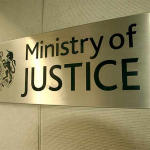Concerns from the legal profession over the threat to legal privilege posed by the Investigatory Powers Bill, also known as the ‘snooper’s charter’, have been quelled this week by further amendments in the House of Lords.
The changes give greater protection to legally privileged material accidentally caught in a legitimate search, by making them subject to a ‘public interest’ test.
The safeguards were included in amendments to clause 56 of the bill, incorporated during the third reading of the bill on Monday (31 October) and put forward by Minister of State for Defence Earl Howe.
Law Society president Robert Bourns said: ‘Legal professional privilege is at the heart of the solicitor-client relationship, as it gives our clients the assurance that they can discuss in confidence the most intimate details of their private and professional lives.’
‘Anything which undermines this trust is a serious concern, which is why we are pleased the government has agreed to sensible changes to the bill to strengthen protections.’
Colin Passmore, senior partner of Simmons & Simmons warned that despite the combined efforts of the Law Society and the Bar Council, the government had not been persuaded to leave the issue of legal privilege alone entirely.
Passmore (pictured) said: ‘The government says it is concerned about potential terrorist activities, but at the end of the day, I am worried and I continue to be worried that this is the thin end of the wedge, particularly when in other areas we see select committees criticising lawyers for asserting privilege.
‘We know that the Serious Fraud Office and the Financial Conduct Authority have issues around the assertion of privilege in relation to financial services investigations. There is a big theme out there that privilege is seen as a problem for public authorities and that really concerns me.’
The Bill, due to be passed by the end of this year, will govern all of the powers available to law enforcement, the security and intelligence agencies and the armed forces to acquire communications from the public through means such as accessing web browsing histories and phone hacking.
kathryn.mccann@legalease.co.uk











